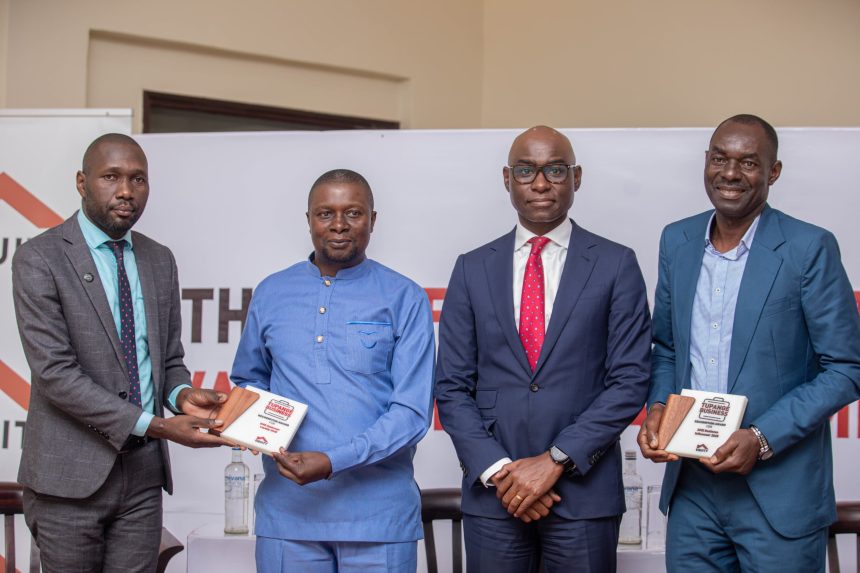In the bustling city of Mbale, Uganda, the TUPANGE Business Ne Equity Bank event brought together entrepreneurs, dreamers, and innovators under the warm glow of a shared vision: to unlock the potential of small and medium enterprises (SMEs).
Speaker after speaker – including Claver Serumaga (Executive Director, Commercial – Equity Bank), Ms. Olivia Mugaba (Head of SME, Equity Bank), Mr. Saleh Naminya (Managing Director of Casa Uganda Safaris & Lodges), Mr. Odoki Richard (Lecturer at Uganda Martyrs University), and Mr. Natalisile James (MTA) – shared hard-earned wisdom told through experiences of resilience, collaboration, and innovation.
The TUPANGE Business Ne Equity Bank event in Mbale focused on unlocking business growth through value chain financing, digital transformation, and strategic partnerships, with a particular emphasis on supporting SMEs.
These are the eight transformative lessons that lit a spark in the hearts of Mbale’s business community:
1. Scaling Up Businesses
The speakers emphasized the importance of scaling businesses through financial and technical support. SMEs need to grow beyond stagnant operations by accessing tailored financial products and expertise to manage challenges like human resources, compliance with URA and NSSF regulations, and operational efficiency. Scaling requires the right personnel and technical support to ensure sustainability.
2. Value Chain Financing
The discussion highlighted the critical role of value chain financing in enabling SMEs to meet large contracts and sustain operations. Financing the entire supply chain—from input suppliers to distributors—helps businesses reduce risks, manage cash flow, and seize opportunities. Examples included stock financing and credit lines accessible via mobile phones.
3. Digital Transformation and Accessibility
Speakers stressed the need for SMEs to adopt digital tools, such as point-of-sale machines and mobile banking, to cater to international customers and streamline operations. Digitalization enables businesses to track performance, make payments, and access markets efficiently.
4. Partnerships and Ecosystem Collaboration
Building partnerships within and across sectors (e.g., tourism, agriculture, and manufacturing) creates a robust ecosystem that supports growth. For instance, tourism businesses benefit from reliable transport and quality produce, which require strong value chain linkages.
5. Tax Compliance and Government Benefits
Compliance with tax regulations and formal registration were highlighted as essential for SMEs to access government incentives and exemptions. Understanding tax policies and maintaining proper accounting allows businesses to benefit from opportunities in sectors like tourism, agriculture, and health.
6. Knowledge and Financial Literacy
Knowledge is power for entrepreneurs. SMEs need to seek financial literacy training and consult experts to navigate policies, avoid common pitfalls like hiring unqualified relatives, and make informed decisions. Equity Bank Uganda was praised for offering both financing and business advisory services.
7. Sustainability and Market Access
Uganda’s high SME failure rate (53%) due to inadequate working capital and market access was addressed. Innovative financing solutions, such as invoice financing and tailored credit lines, were presented as ways to bridge these gaps. Accessing international markets through trade fairs was also encouraged.
8. Case Studies and Practical Solutions
Local success stories demonstrated how value chain financing and trust-based relationships can drive SME growth. For example, a business supported by Equity Bank grew from a 20 million to a 100 million shilling credit line through consistent performance and partnerships with anchor clients like Coca-Cola.
Overall, the event encouraged SMEs to embrace digital tools, comply with regulations, build strategic partnerships, and leverage tailored financial solutions to overcome growth barriers and thrive in a competitive environment. The engagements, enriched by various contributions from speakers, inspired attendees to pursue sustainable growth through collaboration and innovation.
The next TUPANGE Business Ne Equity event takes place in Arua on Thursday, 21st August 2025.




















